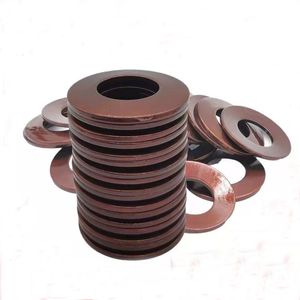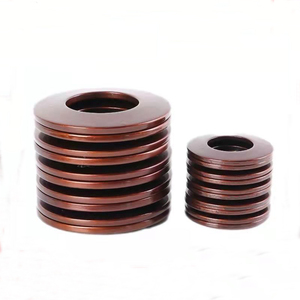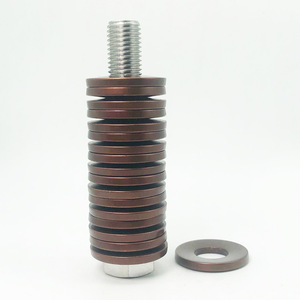(6621 produits disponibles)



































































































































































































Les lave-balles, également connus sous le nom d'appareils de lavage de balles de golf, se déclinent en plusieurs types, chacun conçu pour répondre à des besoins et des préférences spécifiques. Voici un aperçu des différents types :
Lave-balles manuels
Ce sont des dispositifs simples qui utilisent l'effort physique du golfeur pour nettoyer les balles. Ils sont généralement fixés aux chariots de golf ou montés au niveau des départs. Pour nettoyer la balle, le golfeur l'insère dans un trou et la frotte à l'aide d'une poignée ou d'une brosse. Les lave-balles manuels fonctionnent sans électricité ni batteries. Ils sont principalement conçus pour leur coût abordable et leur simplicité.
Lave-balles automatiques
Ces dispositifs sont alimentés par l'électricité ou des batteries pour offrir plus de commodité que les modèles manuels. Les lave-balles automatiques nettoient les balles de golf en utilisant de l'eau et une solution nettoyage. Ils utilisent également une agitation ou une rotation, ce qui élimine la saleté et la boue de la surface des balles. Ces dispositifs se trouvent généralement dans les installations des parcours de golf ou dans certains chariots de golf.
Lave-balles portables
Ce sont des dispositifs compacts et légers que les golfeurs peuvent facilement transporter et utiliser n'importe où sur le parcours. La plupart d'entre eux ne nécessitent aucune forme d'électricité ou de batteries. Ils fonctionnent généralement à l'aide d'une pompe à pied ou disposent d'un système d'eau sous pression. Cela garantit que les golfeurs peuvent laver leurs balles rapidement et efficacement sur le terrain.
Lave-balles à main
Ce sont de petits dispositifs personnels qui s'intègrent parfaitement dans le sac d'un golfeur. Ils sont conçus pour nettoyer les balles de golf en utilisant de l'eau et une solution de nettoyage. Les lave-balles à main sont dotés de brosses intégrées ou de tampons de frottement qui permettent un processus de nettoyage efficace. Ils sont populaires parmi les golfeurs qui préfèrent un dispositif de nettoyage personnalisé, facile à utiliser et à transporter.
Lave-balles intégrés
Ce sont des dispositifs de lavage qui sont incorporés dans d'autres accessoires de golf. Par exemple, certains sont inclus dans des sacs de golf, des chariots, ou même dans les structures des départs. Ils offrent une commodité, car ils sont facilement accessibles depuis différents points du parcours de golf.
Les lave-balles, ou lave-balles de golf, jouent un rôle essentiel dans le maintien de la propreté des balles de sport. Leurs applications s'étendent à divers sports, notamment le golf, le football, le basketball, et plus encore. Dans le golf, ils offrent des solutions pratiques pour garder les balles de golf propres. Cela est particulièrement important après qu'elles aient été utilisées dans plusieurs trous au cours d'une partie. Cela garantit une quantité minimale de saleté et de boue sur les balles, ce qui peut affecter leur mouvement et leur comportement. La plupart des fabricants conçoivent ces lave-balles de football pour être montés à des emplacements idéaux, tels que les départs ou près des fairways. Cela les rend facilement accessibles aux golfeurs.
Dans le football, les dispositifs de nettoyage de balles sont utilisés lors des entraînements et des matches. Ils aident à éliminer la saleté et la boue des balles, garantissant des conditions de jeu constantes tout en réduisant le poids et la traînée de la balle. Ces machines sont généralement situées à l'entrée du terrain ou le long des lignes de touche, ce qui les rend facilement accessibles pour un nettoyage rapide des balles. Dans le basketball, les dispositifs de nettoyage de balles sont utilisés pour maintenir les ballons de basketball propres lors des entraînements et des matches. Ils éliminent la poussière et les débris des balles, garantissant une prise et des conditions de jeu constantes. Ces dispositifs se trouvent souvent sur les lignes de touche ou près des bancs d'équipe pour un accès rapide.
Au-delà du sport, les lave-balles ont diverses applications dans des contextes industriels et récréatifs. Par exemple, les parcs d'attractions utilisent des lave-balles de golf pour nettoyer les balles de golf utilisées dans les jeux de mini-golf. Cela améliore l'expérience des joueurs. Les salles de sport et les installations sportives utilisent ces machines pour maintenir la propreté des balles de sport, garantissant ainsi l'hygiène et des conditions de jeu constantes pour les utilisateurs. Dans les laboratoires et les centres de recherche, les lave-balles nettoient les balles utilisées dans des expériences ou des démonstrations.
Les lave-balles sont également largement utilisés dans le secteur médical. Par exemple, ils peuvent être utilisés pour nettoyer les balles utilisées lors d'exercices de physiothérapie, garantissant ainsi l'hygiène et prévenant la propagation des germes et des bactéries. En résumé, les lave-balles sont des machines polyvalentes qui servent à de nombreuses applications dans différents sports et industries. Avec un entretien et des soins appropriés, ces machines peuvent fournir des solutions de nettoyage de balles fiables et efficaces pendant des années.
Lors de l'achat de lave-balles, les acheteurs professionnels doivent prendre en compte divers facteurs qui les aideront à sélectionner des produits répondant aux besoins de leurs clients. Voici quelques-uns d'entre eux :
Matériau
Les lave-balles sont fabriqués à partir de différents matériaux qui peuvent affecter leur durabilité et leur performance. Les matériaux courants incluent l'acier inoxydable, le laiton, le bronze, le plastique et l'aluminium. Chaque matériau a des caractéristiques uniques ; par exemple, les lave-balles en plastique sont résistants à la corrosion, tandis que ceux en acier inoxydable peuvent supporter des environnements difficiles. Selon l'application, les acheteurs doivent s'assurer que le bon matériau est choisi pour des performances optimales.
Taille
Les lave-balles sont disponibles dans différentes tailles et dimensions. Les acheteurs doivent être conscients des tailles standard et des tailles spéciales qui peuvent être requises pour des applications particulières. Un dimensionnement adéquat est crucial pour le bon fonctionnement des lave-balles, car cela garantit qu'ils s'intègrent parfaitement aux applications prévues.
Type
Comme discuté précédemment, il existe plusieurs types de lave-balles de golf, y compris les lave-balles plats, creux et à centre surélevé. Chaque type est conçu pour des applications spécifiques. Par conséquent, les acheteurs doivent choisir le type qui offre la performance désirée et répond aux besoins de leurs clients.
Conditions environnementales
Les conditions environnementales où les lave-balles seront utilisés doivent être prises en compte. Par exemple, si le lave-balles sera utilisé dans un environnement exposé à la corrosion, il est important d'acheter un lave-balles résistant à la corrosion. De plus, s'il sera soumis à des températures extrêmes ou à une humidité élevée, les acheteurs doivent choisir un lave-balles capable de résister à de telles conditions.
Normes et certifications
Les acheteurs professionnels doivent s'assurer que le dispositif de lavage de balles de golf possède les certifications pertinentes et se conforme aux normes de l'industrie. La conformité à ces normes garantit que la fiabilité et la qualité du produit sont vérifiées.
Voici les caractéristiques et fonctions des lave-balles que les propriétaires d'entreprise devraient prendre en compte pour les aider à prendre des décisions éclairées.
Mécanisme de nettoyage
Tous les lave-balles de golf offrent un mécanisme de nettoyage. Certains utilisent des méthodes de nettoyage manuelles, tandis que d'autres sont automatisés. Les lave-balles manuels utilisent une agitation manuelle ou un frottement pour nettoyer les balles. Les lave-balles automatiques utilisent une agitation alimentée électriquement pour nettoyer les balles. Certaines machines utilisent de l'air comprimé pour enlever la saleté avant le lavage. Les mécanismes de nettoyage garantissent que les balles de golf sont propres pour améliorer le jeu.
Portabilité
Les lave-balles portables sont petits et peuvent être facilement déplacés. Ils sont conçus pour être utilisés à plusieurs emplacements, tels que les zones d'entraînement et les parcours de golf. D'autres lave-balles portables sont conçus pour s'adapter aux chariots de golf afin de fournir des solutions de nettoyage sur le parcours. Les lave-balles portables offrent commodité et flexibilité aux utilisateurs.
Durabilité
Les lave-balles durables sont fabriqués avec des matériaux de haute qualité tels que l'acier inoxydable, des plastiques robustes ou de l'aluminium. Ils peuvent résister aux conditions extérieures, y compris la pluie, la neige et les températures extrêmes, sans se détériorer. Les lave-balles durables offrent une valeur à long terme car ils ne nécessitent pas de remplacements fréquents.
Mécanisme de nettoyage automatique
Certains modèles de lave-balles de golf sont équipés d'un mécanisme de nettoyage automatique qui réduit l'entretien. Les machines ont des cycles de nettoyage intégrés qui nettoient automatiquement les composants du lave-balles. Cette fonctionnalité garantit que les balles de golf restent propres et que la machine fonctionne efficacement.
Fonctionnalités de conservation de l'eau
La conservation de l'eau est une caractéristique importante des lave-balles de golf. Les machines disposent de systèmes de protection de l'eau, tels que des systèmes de recyclage et de réutilisation. Elles permettent d'économiser de grandes quantités d'eau, réduisant ainsi les coûts d'exploitation et favorisant la durabilité environnementale.
Facilité d'utilisation
Les lave-balles de golf faciles à utiliser possèdent des commandes simples et des designs intuitifs. Elles nécessitent peu de formation pour que les utilisateurs puissent faire fonctionner les machines. Les designs conviviaux des lave-balles améliorent la satisfaction client et l'expérience utilisateur.
Q1 : Quel est le but d'un lave-balles dans un assemblage de roulements à billes ?
A1 : Le principal but d'un lave-balles dans un assemblage de roulements à billes est de réduire le frottement entre les billes et la piste. De plus, en fournissant une surface stable contre laquelle les billes peuvent rouler, le lave-balles à anneau fendu aide à maintenir la capacité de charge du roulement et minimise l'usure des billes et des pistes.
Q2 : Quelles sont les conséquences de l'utilisation d'un lave-balles de mauvaise taille ?
A2 : L'utilisation d'un lave-balles de mauvaise taille peut entraîner une défaillance du roulement. De plus, si le lave-balles est trop grand, il peut ne pas s'adapter à l'assemblage, tandis qu'un lave-balles trop petit ne fournira pas un soutien adéquat ou une répartition de la charge.
Q3 : Quels sont les avantages des lave-balles en acier inoxydable par rapport à d'autres matériaux ?
A3 : Les lave-balles en acier inoxydable offrent plusieurs avantages par rapport à d'autres matériaux. Par exemple, ils sont plus durables, résistants à la corrosion et peuvent supporter de lourdes charges. De plus, les lave-balles en acier inoxydable ont une durée de vie plus longue et nécessitent moins d'entretien que ceux fabriqués à partir d'autres matériaux.
Q4 : Comment les facteurs environnementaux affectent-ils la performance des lave-balles ?
A4 : Les facteurs environnementaux, tels que la température et l'humidité, peuvent avoir un impact significatif sur la performance des lave-balles. Par exemple, des températures élevées peuvent faire expanser les lave-balles, tandis qu'une humidité élevée peut provoquer de la corrosion. De plus, l'utilisation des matériaux et des revêtements appropriés peut aider à atténuer les effets des facteurs environnementaux sur les lave-balles.
Q5 : Quel est le principal but d'un lave-balles ?
A5 : Le principal but d'un lave-balles est de nettoyer les balles utilisées dans diverses applications, telles que les stylos à bille ou les équipements sportifs. En éliminant la saleté, les débris et les contaminants, le lave-balles améliore la douceur et la performance des balles, garantissant ainsi une fonctionnalité optimale pour leur utilisation prévue.